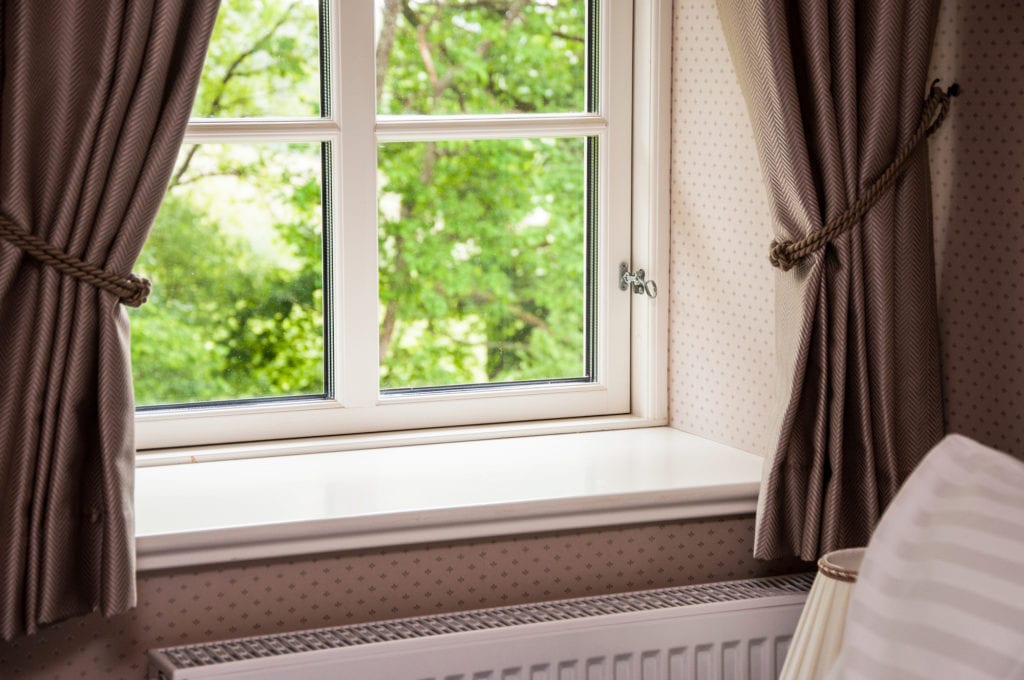The capacity of double glazing to insulate the house from various environmental conditions is only one of its many advantages. These include sound, heat, and intrusion. With the two glass panes and the thermally insulating gas, the house has great thermal performance throughout, improving its energy efficiency, and lowering its carbon footprint and heating expenses.
The home's acoustic performance also significantly improves, keeping noise outside and guaranteeing that your room is more private. Few things are more unpleasant than a bothersome phone call or knock at the door from a displeased neighbour about the noise from social events.
The effectiveness of Double glazed reduce noise is sometimes questioned. Installers of double glazing generally provide the U-values (a measurement of thermal efficiency) for the effectiveness of their specific installations. However, they seldom ever include a noise reduction comparative statistic. Decibels (dB) are used to quantify noise, yet we seldom see them touted as much as we do the U-value.
What exactly is the effectiveness of double-glazed windows in decreasing noise disturbances from the outside world? Here at Ecovue, we are experts on double glazing and intend to find out.
How do double-glazed windows function?
It could be a good idea to determine how double-glazed windows really carry out the purpose for which they were created before we start making measurements and comparisons.
Windows with double glazing have two panes of glass, one on each side of an air pocket. This air pocket is really more appropriately defined as a vacuum that is filled with argon or another common thermal insulating gas. Because gas does not transfer heat easily, it gives the window its ability to insulate against heat.
The glass, the size of the gap, and the quality of the frame are the three crucial components that determine how well the window reduces noise. As a result of how solid materials like glass absorb vibrations in the air, the glass itself aids in preventing noise from passing through. Similarly, the distance between the two panes causes air vibrations to travel across a wide area. The noise reduction increases with gap size. The frame's quality will finally unify the performance of the window. Even if you choose high-quality glass, you won't be able to achieve the performance that the individual components recommend if the glass is not correctly placed in the appropriate frame.
Measurement of noise reduction
As already stated, decibels are used to quantify sound. The louder and more obvious the noise is, the greater the dB number. The decibel measures the sound's power or how ferociously it vibrates the air surrounding the measuring device. There are more vibrations and a greater sound volume at a higher sound pressure level.
Although it would take careful training to quantify the difference between one and two-decibel measures, humans can detect noises between 0 and 140 dB. Extreme silence is defined as 30 dB or less of sound pressure level. For instance, breathing is estimated to be 10 dB in volume. With our indoor voices, we typically talk at a volume of 60 dB. Fireworks and jet engines are louder than helicopters and police sirens, which range from 100 to 110 decibels (dB). Anything higher poses a serious threat to our hearing.
How well does double glazing block out noise?
Glass and insulating gas in double glazing installations dampen vibrations and lessen sound transmission as it passes through them. Double glazed reduce noise sound by between 20 and 65 percent, depending on the quality. This is equivalent to around 35 dB, which is a sizable amount. A discussion taking place just outside the window is reduced to a whisper, while sound that must travel farther will struggle to get through the installation.
This number may go even higher with double glazing when it is fitted properly and has sturdy frames and a high-quality structure.
Summary
In the house, double glazing greatly decreases noise. The solitude and tranquillity of your living areas will be significantly increased by 35 dB, which is nothing to shake a stick at.








